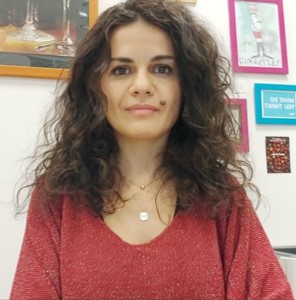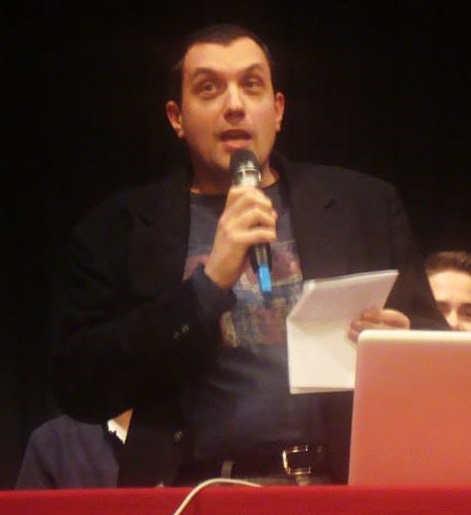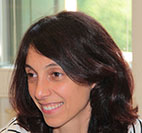Studying at the University of Verona
Here you can find information on the organisational aspects of the Programme, lecture timetables, learning activities and useful contact details for your time at the University, from enrolment to graduation.
Academic calendar
The academic calendar shows the deadlines and scheduled events that are relevant to students, teaching and technical-administrative staff of the University. Public holidays and University closures are also indicated. The academic year normally begins on 1 October each year and ends on 30 September of the following year.
Course calendar
The Academic Calendar sets out the degree programme lecture and exam timetables, as well as the relevant university closure dates..
| Period | From | To |
|---|---|---|
| I semestre | Oct 1, 2019 | Jan 31, 2020 |
| I° semestre - 3° anno | Oct 28, 2019 | Jan 31, 2020 |
| II semestre | Mar 2, 2020 | Jun 12, 2020 |
| Session | From | To |
|---|---|---|
| Sessione invernale d'esame | Feb 3, 2020 | Feb 28, 2020 |
| Sessione estiva d'esame | Jun 15, 2020 | Jul 31, 2020 |
| Sessione autunnale d'esame | Sep 1, 2020 | Sep 30, 2020 |
| Session | From | To |
|---|---|---|
| Sessione di laurea estiva | Jul 20, 2020 | Jul 20, 2020 |
| Sessione autunnale di laurea | Oct 20, 2020 | Oct 20, 2020 |
| Sessione autunnale di laurea - dicembre | Dec 11, 2020 | Dec 11, 2020 |
| Sessione invernale di laurea | Mar 19, 2021 | Mar 19, 2021 |
| Period | From | To |
|---|---|---|
| Festa di Ognissanti | Nov 1, 2019 | Nov 1, 2019 |
| Festa dell'Immacolata | Dec 8, 2019 | Dec 8, 2019 |
| Vacanze di Natale | Dec 23, 2019 | Jan 6, 2020 |
| Vacanze di Pasqua | Apr 10, 2020 | Apr 14, 2020 |
| Festa della Liberazione | Apr 25, 2020 | Apr 25, 2020 |
| Festa del lavoro | May 1, 2020 | May 1, 2020 |
| Festa del Santo Patrono | May 21, 2020 | May 21, 2020 |
| Festa della Repubblica | Jun 2, 2020 | Jun 2, 2020 |
| Vacanze estive | Aug 10, 2020 | Aug 23, 2020 |
Exam calendar
Exam dates and rounds are managed by the relevant Science and Engineering Teaching and Student Services Unit.
To view all the exam sessions available, please use the Exam dashboard on ESSE3.
If you forgot your login details or have problems logging in, please contact the relevant IT HelpDesk, or check the login details recovery web page.
Should you have any doubts or questions, please check the Enrollment FAQs
Academic staff
 michela.cecchin@univr.it
michela.cecchin@univr.it
 bruno.gobbi@univr.it
bruno.gobbi@univr.it
 flaminia.malvezzicampeggi@univr.it
flaminia.malvezzicampeggi@univr.it
 lorenzo.meneghini@univr.it
lorenzo.meneghini@univr.it
 chiara.nardon@univr.it
chiara.nardon@univr.it
 franco.zivcovich@univr.it
franco.zivcovich@univr.it
Study Plan
The Study Plan includes all modules, teaching and learning activities that each student will need to undertake during their time at the University.
Please select your Study Plan based on your enrollment year.
1° Year
| Modules | Credits | TAF | SSD |
|---|
2° Year activated in the A.Y. 2020/2021
| Modules | Credits | TAF | SSD |
|---|
3° Year activated in the A.Y. 2021/2022
| Modules | Credits | TAF | SSD |
|---|
| Modules | Credits | TAF | SSD |
|---|
| Modules | Credits | TAF | SSD |
|---|
| Modules | Credits | TAF | SSD |
|---|
Legend | Type of training activity (TTA)
TAF (Type of Educational Activity) All courses and activities are classified into different types of educational activities, indicated by a letter.
Grapevine Protection (2021/2022)
The teaching is organized as follows:
PATOLOGIA
Credits
9
Period
See the unit page
Academic staff
See the unit page
Learning outcomes
The Course is divided in 2 teaching Units (Plant pathology and Entomology). The aim of the course is to provide knowledge on the biology of the main pathogens and arthropods harmful to grapevine, their interactions with the plant and their relative control methods. Particular attention will be given to pathogenicity mechanisms, plant resistance responses, biological and integrated control measures and to biotechnological applications for disease and pest management. At the end of the course, the student will be able to recognize the main grapevine biotic diseases and to apply a rational and environmentally friendly approach against grapevine disease and harmful arthropods.
Program
------------------------
MM: ENTOMOLOGIA
------------------------
Arthropods characteristics and classification . Morphology, physiology and ethology of insects and mites harmful to grapevine. Nervous, digestive, respiratory, circulatory, reproductive, excretory and endocrine systems. Reproduction and cycle development. Population dynamic: biotic potential and environmental resistance. relationship between insects and other organisms: viruses and phytoplasmas transmission. Insect: Classification, biology, damage and control of the main grapevine pests (e.g. moths, phylloxera, leafhoppers, scales and thrips). Grape’s minor pests. Mites and Nematodes: Grape mites and nematodes, biology, ecology and damages. Pest management: Damage threshold. Chemical control and insects management. Insecticides: general information, mode of action, selectivity and phytotoxicity. Pest resistance management and man-made pests. Biological and integrated pest control. Cultural and mechanical control. Biotechnologies in pest management: pheromones definition and application, mass trapping, RNAi, sterile male technique. The knowledge will be developed with lectures, laboratory activities and personal study on the texts and on the material presented in class that will be available in the Library and/or uploaded to e-learning platform. Moreover, throughout the academic year, the individual reception service will be available (by specific appointment). Attending students will receive in the first lesson the complete timetables of teaching activities with the dates and topics discussed in the lessons
------------------------
MM: PATOLOGIA
------------------------
------------------------ MM: Teoria di patologia ------------------------ ------------------------ MM: Teoria di entomologia ------------------------ Arthropods characteristics and classification . Morphology, physiology and ethology of insects and mites harmful to grapevine. Nervous, digestive, respiratory, circulatory, reproductive, excretory and endocrine systems. Reproduction and cycle development. Population dynamic: biotic potential and environmental resistance. relationship between insects and other organisms: viruses and phytoplasmas transmission. Insect: Classification, biology, damage and control of the main grapevine pests (e.g. moths, phylloxera, leafhoppers, scales and thrips). Grape’s minor pests. Mites and Nematodes: Grape mites and nematodes, biology, ecology and damages. Pest management: Damage threshold. Chemical control and insects management. Insecticides: general information, mode of action, selectivity and phytotoxicity. Pest resistance management and man-made pests. Biological and integrated pest control. Cultural and mechanical control. Biotechnologies in pest management: pheromones definition and application, mass trapping, RNAi, sterile male technique. The knowledge will be developed with lectures, laboratory activities and personal study on the texts and on the material presented in class that will be available in the Library and/or uploaded to e-learning platform. Moreover, throughout the academic year, the individual reception service will be available (by specific appointment). Attending students will receive in the first lesson the complete timetables of teaching activities with the dates and topics discussed in the lessons ------------------------ MM: Laboratorio ------------------------ ------------------------ MM: Laboratorio ------------------------ see program Laboratory 1° group ------------------------ MM: Esercitazioni di entomologia ------------------------ Insects ORTHOPTERA: Ensifera: Tettigoniidae: Barbitistes vicetinus Caelifera: Acrididae: Calliptamus italicus THYSANOPTERA: Terebrantia: Tubulifera: Thripidae: Drepanotrips reuteri, Frankliniella occidentalis HEMIPTERA: Archeorrhyncha: Flatidae: Metcalfa pruinosa Ciixidae: Hyalesthes obsoletus Clypeorrhyncha: Aphophoridae:Philaenus spumarius Cicadellidae: Empoasca vitis, Zygina rhamni, Scaphoideus titanus, Erythroneura vulnerata Sternorrhyncha: Phylloxeridae: Viteus vitifoliae Pseudococidae:Planococcus ficus, P. comstocki Heliococcus bohemicus Coccidae: Neopulvinaria innumerabilis, Partenolecarnium corni, Pulvinaria vitis Diaspididae: Targionia vitis Heteroptera: Pentatomidae: Halyomorpha halys COLEOPTERA: Attelabidae: Bycthiscus betulae Bostrichidae: Sinoxylon perforans Cerambycidae:Vesperus luridus Chrysomelidae: Altica ampelophaga Curculionidae: Otiorhynchus sulcatus Reduvidae: Popillia Japonica Scarabeidae: Anomala vitis, Melolontha melolontha DIPTERA: Nematocera Cecidomyiidae: Janeitiella oenophila Brachycera Drosophilidae: Drosophila melanogaster, D. suzukii LEPIDOPTERA: Tortricidae: Argyrotaenia pulchellana, Eupoecilia ambiguella Lobesia botrana,Sparganothis pilleriana Pyralidae: Cryptoblabes gnidiella, Ephestia unicolorella woodiella Zygaenidae: Theresemima ampelophaga Heliozelidae: Holocacista rivillei, Antispila oinophyilla. Phyllocnistidae: Phyllocnistis vitegenella Erebidae: Hyphantria cunea Noctuidae: Agrotis ipsilon, A. segetum HYMENOPTERA Symphyta Apocrita: Vespidae: Vespula germanica MITE Morphology, anatomy, Development and behavior Mite-plant relationship Grapevine mites (cycle, damage and control): Eriophyidae: Calepitrimerus vitis, Colomerus vitis Tetranychidae: Eotetranychus carpini, Panonychus ulmi, Tetranychus urticae Phytoseiidae: Amblyseius andersoni, Kampimodromus aberrans, Typhlodromus pyri NEMATODS: Grapevine nematods (cycle, damage and control): Longidoridae: Xiphimena index
Bibliography
Examination Methods
------------------------
MM: ENTOMOLOGIA
------------------------
The exam will be made in oral form for both attending students and non-attending students. Under health emergency, this oral mode can be changed in remote telematics one. The attendance at the practice exercises is mandatory in order to be eligible to do the exam. The exam will assess the degree of knowledge on the topics presented during the lectures. The knowledge and the ability to connect knowledge in a systemic and critical way will also be evaluated. The final evaluation is expressed in thirtieths. To determine the overall grade of the exam, the weighted average of the votes obtained in the two modules will be calculated.
------------------------
MM: PATOLOGIA
------------------------
------------------------ MM: Teoria di patologia ------------------------ The exam consists in a colloquium, to evaluate students' achievements, in relation to the above indicated objectives. ------------------------ MM: Teoria di entomologia ------------------------ The exam will be made in oral form for both attending students and non-attending students. Under health emergency, this oral mode can be changed in remote telematics one. The attendance at the practice exercises is mandatory in order to be eligible to do the exam. The exam will assess the degree of knowledge on the topics presented during the lectures. The knowledge and the ability to connect knowledge in a systemic and critical way will also be evaluated. The final evaluation is expressed in thirtieths. To determine the overall grade of the exam, the weighted average of the votes obtained in the two modules will be calculated ------------------------ MM: Laboratorio ------------------------ The verification of the skills acquired during the laboratory activities will take place during the oral exam relating to the theoretical part. The student will have to demonstrate, starting from photographic material, to be able to formulate a diagnostic hypothesis and to correctly approach the diagnostic methods suitable for the example provided. ------------------------ MM: Laboratorio ------------------------ see Exam description Laboratory 1° group ------------------------ MM: Esercitazioni di entomologia ------------------------ The exam will be made in oral form for both attending students and non-attending students. Under health emergency, this oral mode can be changed in remote telematics one. The attendance at the practice exercises is mandatory in order to be eligible to do the exam. The exam will assess the degree of knowledge on the topics presented during the lectures. The knowledge and the ability to connect knowledge in a systemic and critical way will also be evaluated. The final evaluation is expressed in thirtieths. To determine the overall grade of the exam, the weighted average of the votes obtained in the two modules will be calculated.
Type D and Type F activities
Modules not yet included
Career prospects
Module/Programme news
News for students
There you will find information, resources and services useful during your time at the University (Student’s exam record, your study plan on ESSE3, Distance Learning courses, university email account, office forms, administrative procedures, etc.). You can log into MyUnivr with your GIA login details: only in this way will you be able to receive notification of all the notices from your teachers and your secretariat via email and soon also via the Univr app.
Graduation
Attendance
As stated in the Teaching Regulations for the A.Y. 2022/2023, attendance is mandatory for practical and laboratory activities, unless otherwise determined by the Teaching Committee.
Documents
| Title | Info File |
|---|---|
|
|
pdf, it, 121 KB, 18/10/23 |

 +39 045 802 7949
+39 045 802 7949































